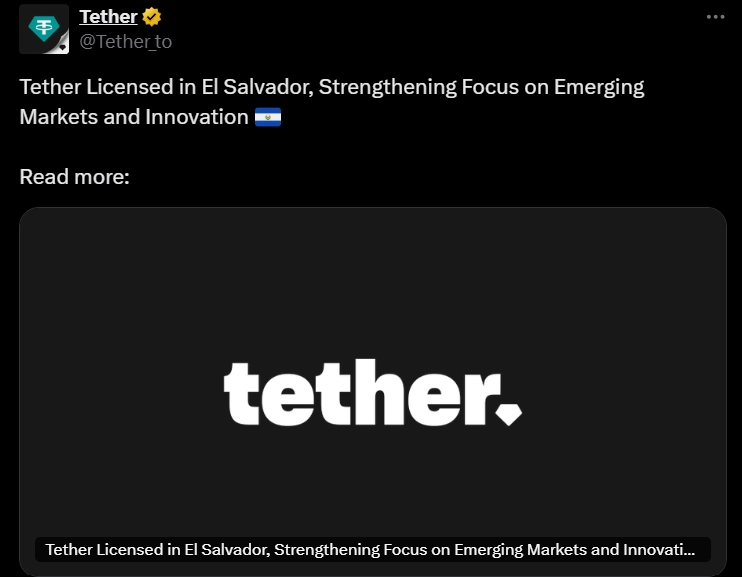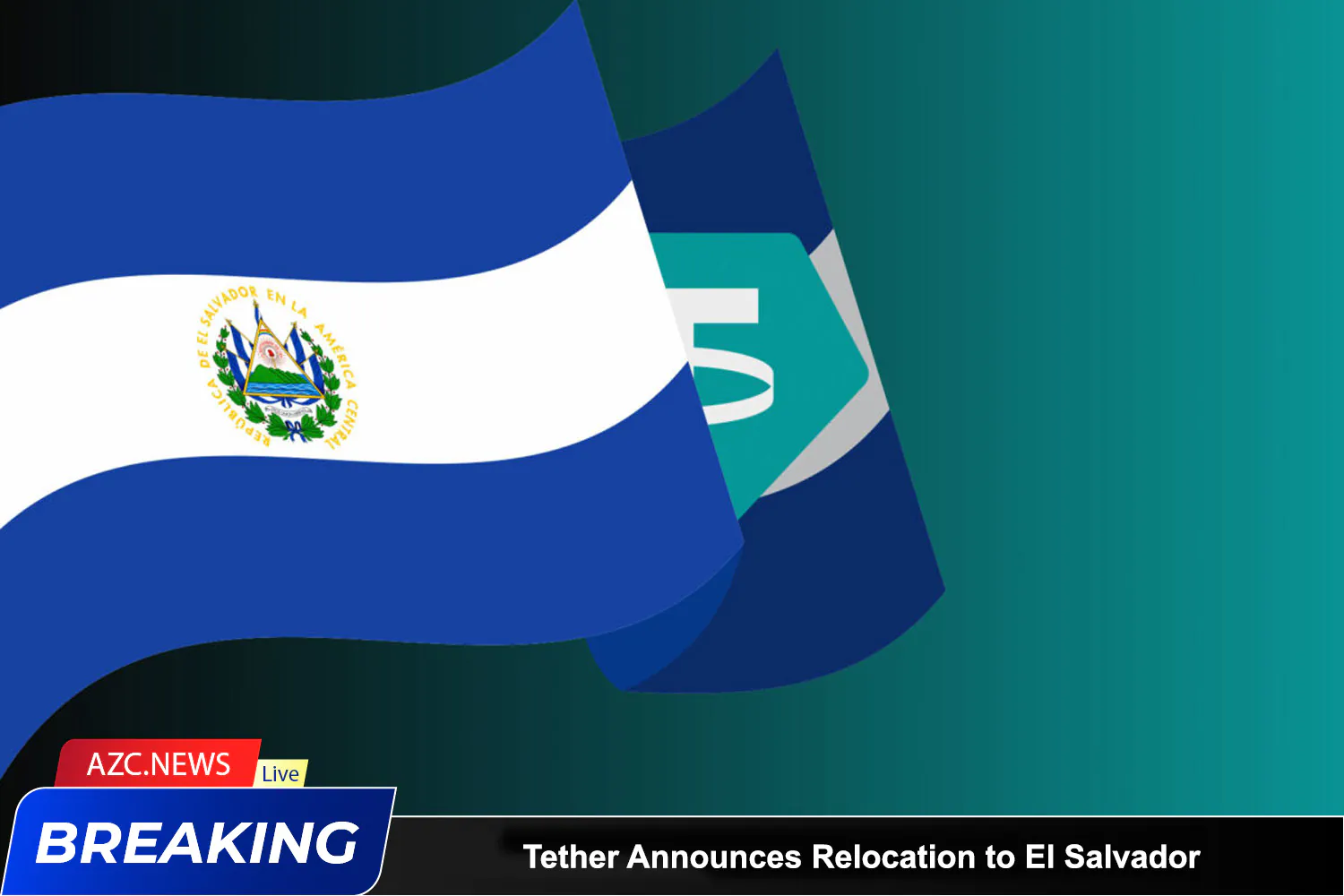On January 13, 2025, Tether, the company behind the world’s largest stablecoin, USDT, officially obtained a Digital Asset Service Provider (DASP) license from the government of El Salvador. This move not only legitimizes Tether’s operations in the Latin American country but also marks El Salvador as the new home for Tether’s headquarters.

This decision by Tether comes as no surprise. Just a week prior, Bitfinex, Tether’s “sister” exchange, received a similar license for its derivatives trading platform in El Salvador.
Tether representatives expressed their optimism about El Salvador’s potential:
This country is rapidly establishing itself as a global hub for digital assets and technological innovation. With its pioneering policies, favorable regulatory environment, and a thriving Bitcoin community, El Salvador truly stands as an ideal destination for companies leading the global fintech revolution.
CEO Paolo Ardoino shared his vision regarding the decision:
El Salvador is not just a new home for Tether but a beacon for advancing digital assets. We share a common vision with the government of El Salvador about financial freedom and progress, and we are committed to empowering global users through decentralized technology.
This move comes at a time when Tether faces challenges in the European market. Following the implementation of the Markets in Crypto-Assets (MiCA) regulation, Tether has not received operational approval within the EU framework, leading to a significant decline in USDT’s market capitalization—the largest since the collapse of FTX in 2022.
Related: Tether Announces Plan to Transfer $1 Billion USDT
Meanwhile, El Salvador remains the only country in the world to officially recognize Bitcoin as legal tender. Despite having to adjust some Bitcoin policies to secure funding from the IMF, the nation remains steadfast in its Bitcoin accumulation strategy, raising its reserves to over 6,000 BTC, worth approximately $570 million.
The synergy between Tether—a leading stablecoin issuer with a market capitalization exceeding $137 billion—and El Salvador, a pioneer in cryptocurrency adoption, promises to usher in a new chapter for the global digital finance industry.






